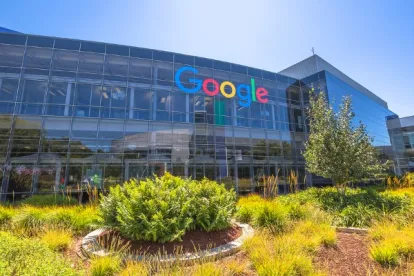In Google LLC f/k/a Google Inc. v. Ikorongo Technology LLC et al, IPR2021-00204, IPR2021-00205 (PTAB Jan. 25, 2022) (Paper 16), the Board granted institution of Inter Partes Review (IPR) of Ikorongo Technology LLC’s patent, following Google LLC’s timely request for rehearing. In its decision, the Board held that Google provided sufficient evidence that a skilled artisan would have been motivated to combine the prior art and would have had a reasonable expectation of success in doing so. The Board later determined that Google demonstrated a reasonable likelihood of showing at least one of the challenged claims to be obvious.
Google initially requested IPR for U.S. Patent No. 8,874,554 (the ’554 patent) owned by Ikorongo, alleging that multiple claims of the patent were obvious under 35 U.S.C. 103(a). The ’554 patent generally relates to a system for identifying media items associated with a geographic area of interest to a user.
On June 7, 2021, the Board denied institution under 35 U.S.C. § 314(a) because the ’554 patent was the subject of a parallel district court proceeding pending at the Western District of Texas. Google filed a timely request for rehearing with the Board, citing a recent order wherein the Federal Circuit issued a writ of mandamus directing the Western District of Texas to transfer the pending district court cases to the Northern District of California. In its request, Google argued that the case schedule in the Western District of Texas, which factored into the Board’s decision to initially deny institution, would be vacated as a result of the Federal Circuit’s order.[1]
After an approximate 8-month pendency, the Board agreed to rehear its decision, as the proceedings in the Northern District of California would be given a new case schedule. The Board then turned to the Petition on the merits.
In its decision on rehearing, the Board focused on two proffered prior art references, Horowitz and Kalasapur. Horowitz discloses a system for presenting media items associated with a selected geographic area and the locations at which the media items were used. Kalasapur discloses a system for generating playlists of media items based on user-content interactions and the context of those interactions.
Upon review, the Board determined that Google established a reasonable likelihood of showing that the references taught various claim limitations. Moreover, the Board found that Google was able to prove that a skilled artisan would be motivated at the time of the invention to look to the GPS location capability of Kalasapur to implement the user device of Horowitz, with a reasonable expectation of success in doing so. Thus, the Board held that Google demonstrated a reasonable likelihood of showing that at least one of the challenged claims would have been obvious.
In sum, after initially receiving a denial of instution, Google later succeeded by showing that the prior roadblock to IPR institution no longer applied. Thus, this decision stands as a good reminder for petitioners to keep track of parallel litigation even after denial, as there may still be opportunities for a future success.
[1] Ikorongo currently has a pending writ of certiorari to the United States Supreme Court regarding the Federal Circuit’s transfer order.




 />i
/>i
